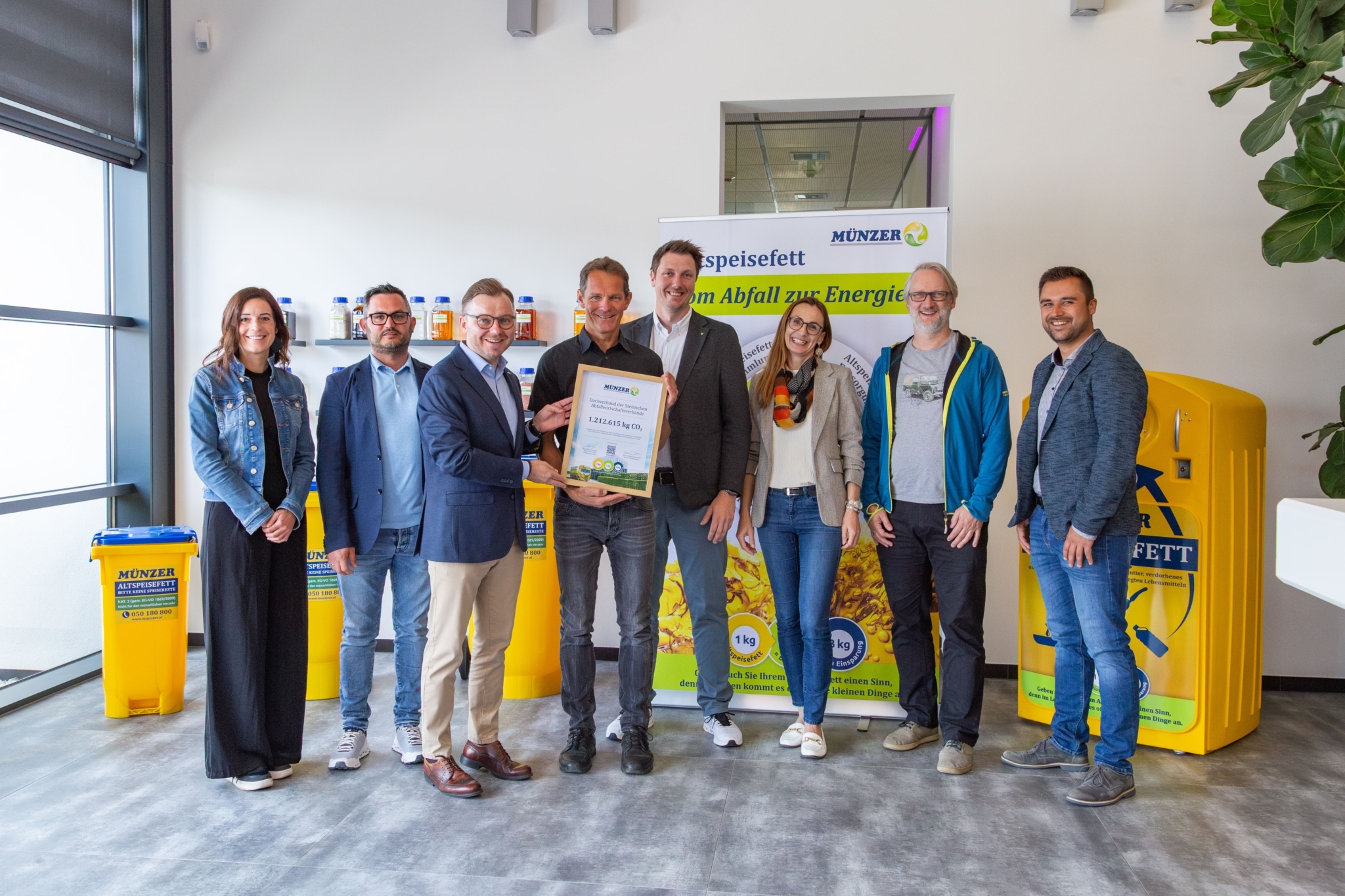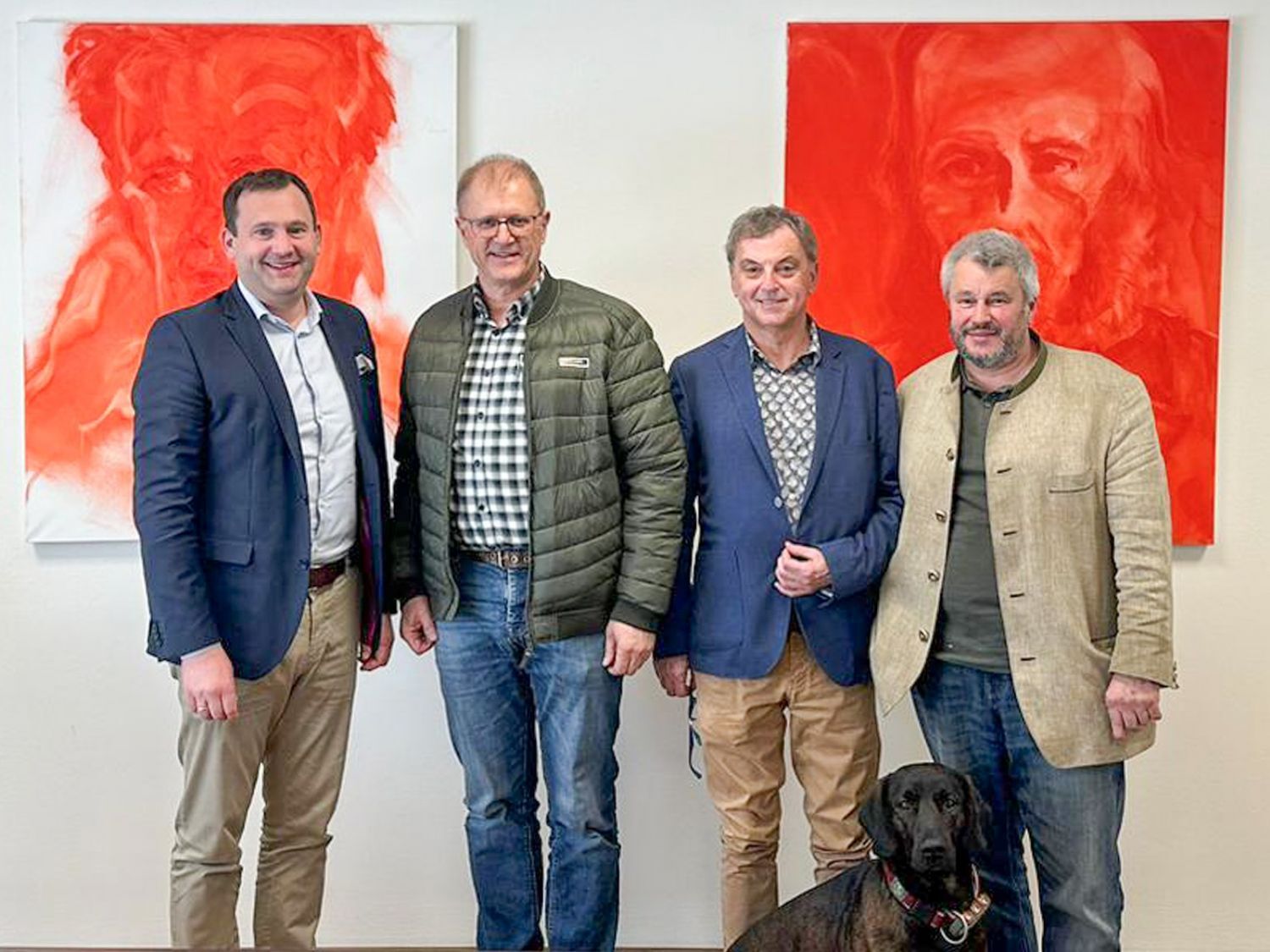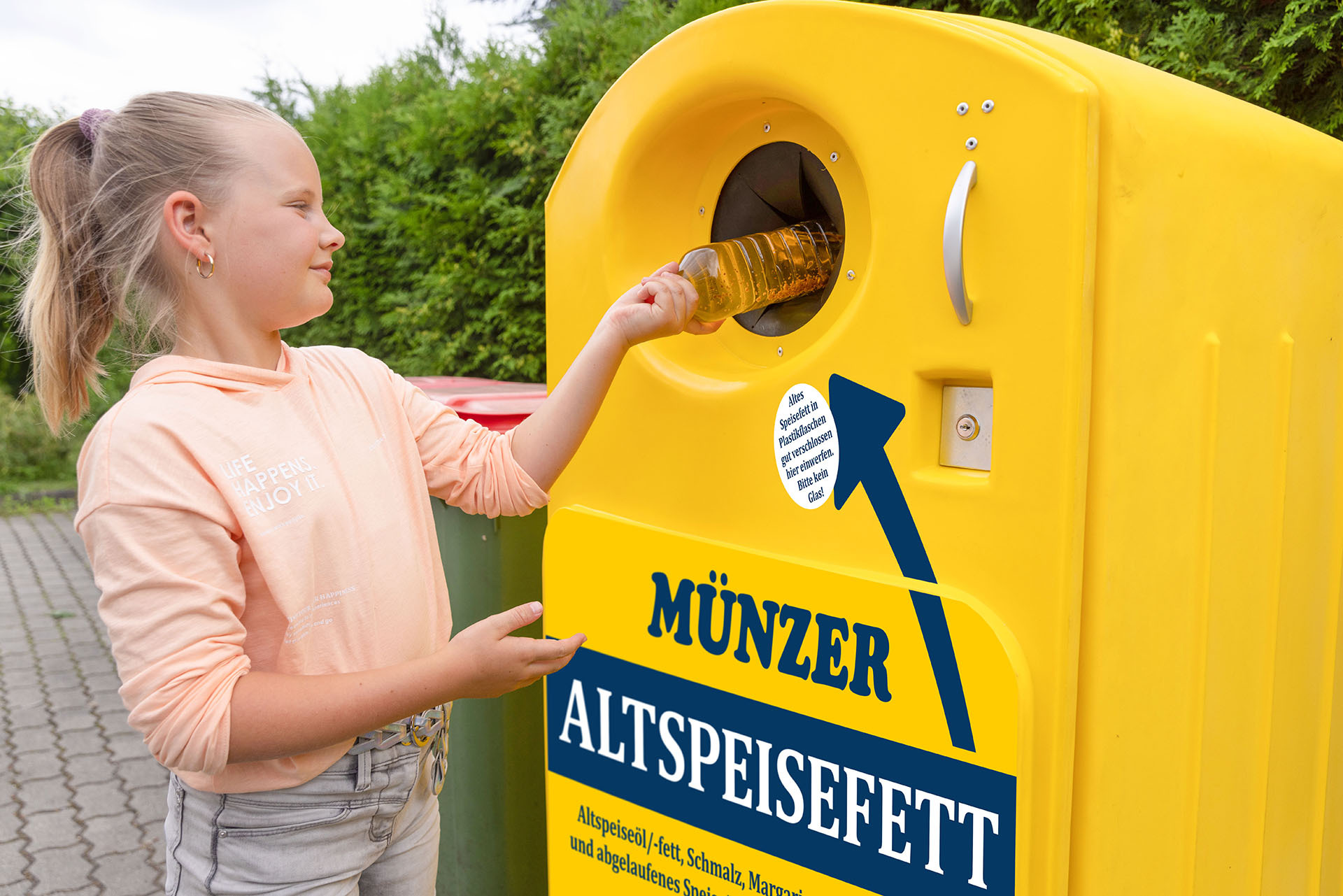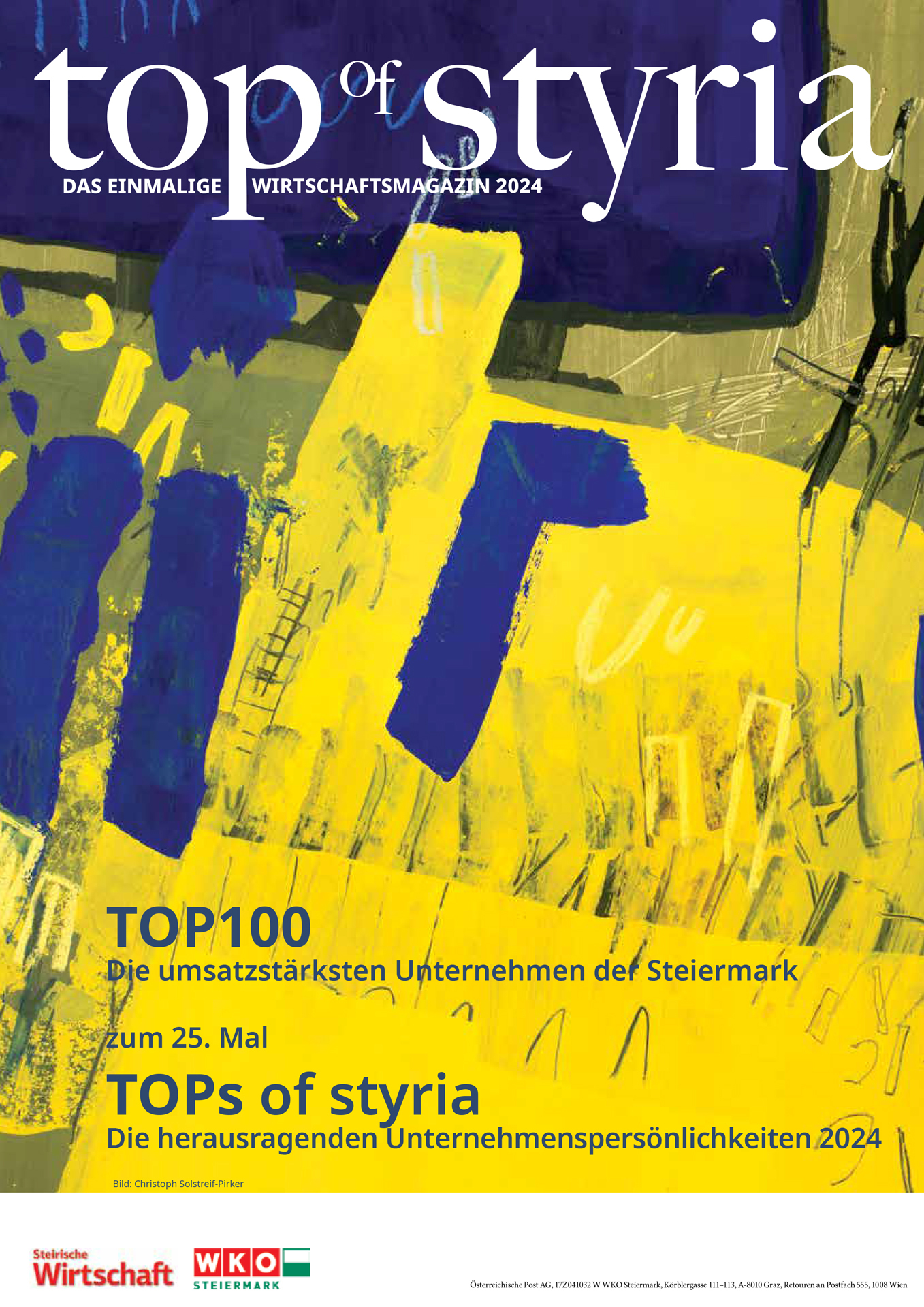corporAID: From the deep-fat fryer into the tank
A report by corporAID – the Austrian platform for business, development and global responsibility
The floor of Münzer Bioindustrie's UCO collection point is sparkling clean. And not just because of the visitors walking around with their pens and cameras at the ready, but because it's always freshly mopped. The visitors are not disturbed by any unpleasant smells either, considering that the facility processes 200 tonnes of UCO (used cooking oil, including fat) every day. Only when an employee opens one of the delivered bins for demonstration purposes do odours emerge that evoke childhood memories of open-air buffet meals when scant attention was paid to regularly changing the frying oil.
Here at the Münzer Bioindustrie plant in Vienna, the used cooking oils and fats collected from businesses of various sizes – from fast-food chains such as McDonald's to well-known restaurants such as Plachutta in Vienna, as well as takeaway sausage stands – are heated for around 24 hours and then treated in shiny silver processing units. The used cooking oil – with the scatterings of single chips, plastic forks and other little surprises removed – flows through heated pipes into large tanks where it is mixed with methanol. The result is biodiesel, or to use its chemical name: fatty acid methyl ester, an environmentally friendly fuel that can be used like fossil diesel. And that can help in the fight against climate change: One litre of used cooking oil produces around a litre of biodiesel – and burning it saves around three kilogrammes of CO2 compared to fossil diesel.
Based in Sinabelkirchen, in the Austrian province of Styria, Münzer Bioindustrie produces some 220 million litres of biodiesel every year, including 140 million litres at the Lobau oil terminal on the outskirts of Vienna. Situated between a local recreation area and the “Donau-Auen” riverside meadows national park alongside the river Danube, the site offers the great advantage that the biodiesel can be transported not only by truck, train and boat, but also by direct pipeline to the main customer, OMV.
A pioneer in liquid waste
The company was founded in 1991 by Ewald Münzer – a pioneer in the recycling of liquid waste, as recalled by his son Ewald-Marco Münzer, who now runs the business together with his brother Michael: “Awareness of the need to re-use waste back in the 1980s in Austria was first and foremost concerned with solid waste, namely the separate collection and recycling of paper and glass.” Liquids were not yet seen as part of the emerging circular economy through recycling at the time, though some specific logistical issues did soon arise: As Ewald-Marco Münzer recalls: “Used cooking oil could not simply be dumped. Even sewage treatment plants were unable to cope with it. So new pathways of re-use had to be opened up.” Based on research at the Karl-Franzens University in Graz, Münzer then developed a technology that is still used today to produce an alternative energy source from used cooking oil and fat.
This marked the starting point for Münzer Bioindustrie's rapid growth, which culminated in 2006 with the construction of Austria's largest biodiesel production plant at the Lobau oil terminal. Since then, Münzer has been producing tens of millions of litres of biodiesel every year, which is blended with conventional diesel at a rate of seven percent in Austria. Increasing the blend to at least ten percent has been debated for years. Ewald-Marco Münzer believes that it would be feasible both technically and economically. The trucks operated by McDonald's, for example, run exclusively on biodiesel. Notwithstanding such restrictions, demand for Münzer biodiesel has been rising steadily for years: The company's turnover has more than doubled to €430 million within five years.
Münzer offers a broad portfolio
Though it is the main product, sales are not generated solely by biodiesel. The production process also generates by-products, such as potassium sulphate, which is used in the fertiliser industry, and pharmaceutical glycerine, which is ultimately turned into antifreeze for vehicle windscreen wiper fluid or disinfectants. The latter example of a functioning recycling system may well come as a surprise to many. Who knew that the little bottles of pungent-smelling fluid that became such a common resource for everyone during the Covid years might contain recycled fat from McDonald's fryers?
Münzer is also intending to utilise solid biowaste occurring in production, such as breadcrumbs, to make biogas in future. Plans for the construction of a proprietary biogas plant in Pillichsdorf, in the province of Lower Austria, are already at an advanced stage. Once approval for the €40 million project has been finalised, construction can begin, and Münzer plans to start production by the end of 2024. It will incorporate one special feature in particular: At the 300 biogas plants currently operating in Austria, the biogas produced is almost always converted into electricity. Only 15 of them are technically capable of producing biogas of the same quality as natural gas, which can be fed directly into the gas grid. And the Münzer plant in Pillichsdorf will be capable of doing just that. “The entire industry is at a threshold. Processes are also being developed that will enable biomethane to be used as a synthetic fuel in future,” CEO Münzer reports.
Following the Austrian government's announcement in January as part of its renewable energy initiative that it intends increasing biogas production tenfold to more than ten billion kilowatt-hours per year by 2030, the issue is also politically on trend. Münzer is little impressed by the announcement however: “Five years or so ago, the government was saying that it wanted to move away from biogas completely, yet now it’s being pushed as a policy initiative. We have never been overly concerned as to whether biomethane is included in state subsidy programmes or not. We just need stable conditions to work in.”
Münzer preventing heart attacks
The company is no longer growing just in Austria. In recent years, it has opened new plants in Mumbai (2016), Dhaka (2020) and Nairobi (2021) in addition to the company’s existing sites in Europe. It is an international expansion which Ewald-Marco Münzer calls “essentially unplanned”. The Indian business came about by chance, in fact, when a delegation led by India’s Energy Minister wanted to visit an Austrian biodiesel plant during an OPEC conference. Contact was established via the respective embassies, and two days later Ewald-Marco Münzer hosted the Indian visitors on a tour of the Lobau oil terminal facility.
“The Minister then invited us to India, to show us the market conditions. What we discovered when we went was that the Indians were not primarily interested in biodiesel as an alternative energy source, but in the processing of the waste-based raw material,” says Münzer. Unlike in Europe, in India this is not just an energy policy issue, but above all a health policy issue. It is common there for cooking oil to be re-used over and over again, with hotel employees, for example, taking used oil and fat home for their own cooking needs. As Münzer reports, however, the repeated reheating of fats leads to increased dioxin contamination, which is reflected in high heart attack rates among people under 30 in many developing countries.
“The Indian government recognised this long ago. But what was also clear was that if, for example, restaurants are required to label used cooking oil as waste and not as a foodstuff, they must also be offered an appropriate collection system; otherwise it will be disposed of improperly via the sewage system. And that's where we came in,” says Münzer. The current focus is on expanding the already established collection system in and around Mumbai. Subsequently – as soon as the right market conditions and regulatory framework are in place – the aim is to gradually expand the still quite small biodiesel production plant. “India is making painstaking efforts to prepare for the blending of biodiesel with fossil diesel, but given the complex market mechanisms involved, it is not something that can be done overnight. The first EU directive on the blending of biofuels was more than 20 years ago,” Münzer points out. Ultimately, before production facilities can be built,the raw material must first be secured – and that means liquid waste. Once a critical mass has been reached to guarantee that such facilities can be run, the next processing step can be introduced.
Foodstuff or waste?
In 2020, Münzer began operations in neighbouring Bangladesh, likewise launching a collection system. And a year later, following an approach from the Kenyan Agriculture and Food Authority, the Styrian company launched a branch operation in Kenya too. “We were aware that the move into Africa had in fact come a few years too early. But we were presented with a unique opportunity that we simply had to take,” Ewald-Marco Münzer says. And ultimately, the challenges faced and the growing awareness of the issue are quite similar in both Kenya and South Asia. The key factor in determining whether a market is suitable for Münzer or not is “the regulatory definition: Is the used cooking oil a foodstuff or a waste-based raw material?”
Over the next few years, Münzer's first priority will be to stabilise and expand its sites in India, Bangladesh and Kenya. In addition to building a stronger presence in Eastern Europe, another potential future market the CEO mentions is Ghana, where company representatives recently visited on a fact-finding mission. “Ghana has been increasingly promoting the utilisation of solid waste for a number of years. And now attention is turning to the recycling of liquid waste. The Ghana Food and Drugs Authority is at least aware of the issue,” says Münzer. In Ghana, too, he envisages the possibility of setting up a collection system at calculable risk, and making investment decisions for the establishment of industrial plants based on the company’s relevant experience.
Münzer is staying flexible
Münzer is following political trends in Europe at close quarters. For example, the gradual rise in demand for biodiesel as an alternative energy source in developing countries might be offset by a dramatic decline in Europe. The EU has agreed on a law that no new petrol or diesel vehicles are to be sold after 2035. However, the complete electrification of motor transport would also mean that interest in blended biodiesel would disappear. Ewald-Marco Münzer is against banning combustion engined vehicles: “We are in favour of supplementing, not replacing. We believe that we will need all available variants of alternative forms of energy in order to achieve substantial decarbonisation. Electromobility is important, but there are also systemic limits that need to be recognised.” He is not losing any sleep over the matter however: “There will still be many sectors that will benefit from biodiesel, such as heavy goods transport and the commercial vehicles sector, and looking ahead most likely shipping too.”
Münzer’s confidence in the face of the advance of electric vehicles is also demonstrated by its latest subsidiary, named epuls. It is an online platform on which EV owners in Austria who are entitled to bonus payments based on overfulfilment of the EU directives governing electric vehicles can register. Münzer will pay them the bonus, and in return trade the decarbonisation quotas acquired by the users. “Although electromobility has not been a core consideration for us to date, we thought: This train is coming, either we get on board or we let it pass us by. We may not be part of the “fan club”, but we do also own electric vehicles, and are building charging stations. From the viewpoint of openness to technology – or rather, technological diversity – every renewable energy form is justified to some extent,” comments Münzer.
Panta rhei
So Münzer Bioindustrie is acting in keeping with the ancient saying “everything flows” – and not just because of the location of its large-scale production plant right on the shore of the Danube. The company is also responding rapidly to customers’ needs and changes in the industry in terms of its products, business models and international markets. For CEO Ewald-Marco Münzer, the only thing that remains unchangeable is the company's clear focus on sustainability and recycling: “For us, sustainability is not just a phrase in a mission statement, but at the core of everything we do.”
A name for more than 32 years.
A family. A company.
“From waste to energy” – Münzer Bioindustrie



